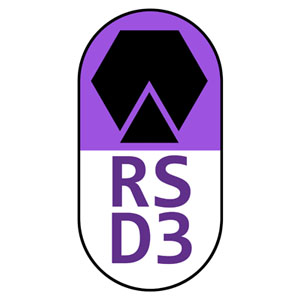Resource For Structure-Based Computational Drug Discovery And Design (RSCD3)
Building on several decades of work with the AutoDock Suite, the Resource for Structure-based Computational Drug Discovery and Design (RSCD3) aims to provide a user-facing infrastructure for novice and expert users to easily apply a diverse, modern toolset of methods to drug discovery and design applications.
RSCD3 is directed by Dr. Stefano Forli, PI of the Forli lab at Scripps Research.
Getting Started
Beginner guides for molecular modeling, docking, and virtual screening.Current Projects
New updates and ongoing projects on AutoDock at RSD3Legacy Programs
Access the legacy AutoDock programs and the peripheral tools built around them.Legacy Programs
For more information about AutoDock4.2.6 (last revision: July 2014), AutoDock Vina v1.1.2 (last revision: May 2011) and the peripheral tools built around them. These sites remain open for information purposes,
Learn With Our
Cookbook & Documentations
For Beginners
For Teachers
News & Events
RSCD3 is extending its support for the community through documentation and self-taught tutorials as well as presenting workshops at national conferences, community discussion groups, and expert guidance for showcasing more recent and advanced protocols.
Visit Our Campus At Scripps Research, La Jolla, CA
This resource is funded by a National Institute of General Medical Sciences grant: R24GM145962.
Copyright © 2024 RSCD3: Resource for Structure-based Computational Drug Discovery and Design




